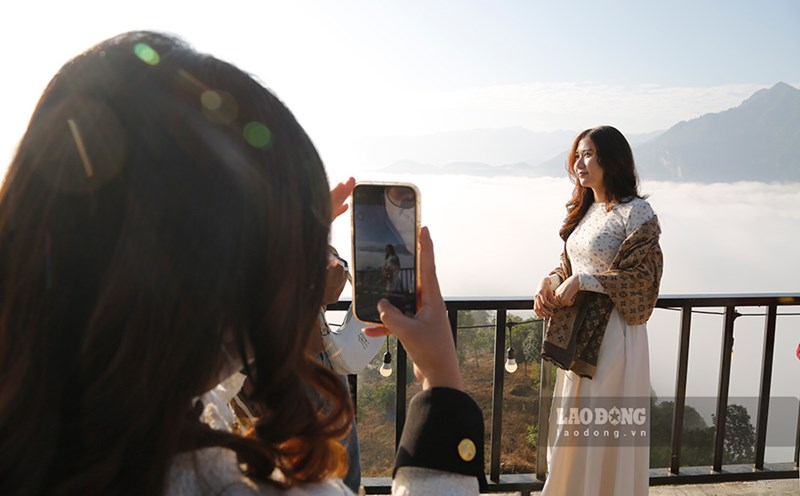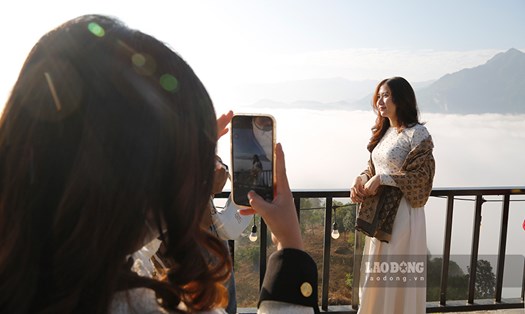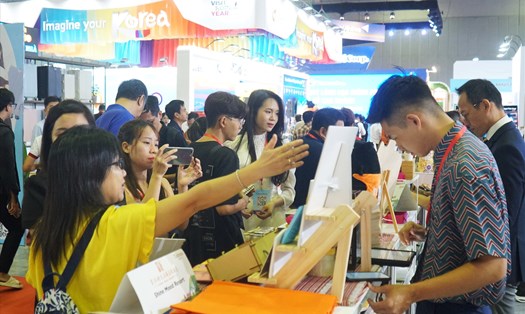In the context of the ever-changing tourism industry, artificial intelligence (AI) has emerged as a transformative step, reshaping the travel journey and experience of tourists.
McKinsey’s study “The Economic Potential of Generative AI: The Next Productivity Frontier” highlights the enormous potential of generative AI: unlocking $2 trillion to $4 trillion in annual value across industries.
AI directly impacts the traveler experience
Currently, AI technologies, such as facial recognition, are used for airport and hotel check-in, enhancing security and simplifying the boarding or check-in process.
Biometric systems contribute to a more seamless and secure travel experience. Robots equipped with AI capabilities are used in the hospitality industry for tasks such as room service, concierge services, and cleaning. Some airports are also deploying robots to handle baggage and assist customers.

Furthermore, AI algorithms are widely used to analyze user behavior, preferences, and previous travel history to provide personalized recommendations for destinations, accommodations, and activities.
For travelers, AI technology also helps speed up the trip planning process, solving complex requests in a short time. In fact, before the AI boom, during the COVID-19 pandemic, augmented reality (AR) and virtual reality (VR) technologies enhanced the travel experience by providing virtual tours, interactive maps, and immersive experiences to help travelers explore destinations without actually being there.
One popular application of AR is in translation apps – allowing users to point their smartphones at foreign signs or text. The app then overlays the translation onto the real-world image, breaking down language barriers for visitors and allowing them to better experience the new environment.
Additionally, AI-powered chatbots and virtual assistants are used for customer service, providing instant responses to questions and assisting with the booking process. These systems can handle routine tasks, such as booking changes and frequently asked questions, and provide travel recommendations based on user preferences.
For businesses, AI is used to analyze historical booking patterns, market demand, and external factors such as weather, events, etc. to optimize prices in real time. Dynamic pricing strategies help companies adjust prices to maximize revenue and occupancy rates in hotels.
AI technology is also used for predictive maintenance in the transportation sector, helping to predict and address potential problems with vehicles and aircraft before failures cause operational disruptions.

The Huge Potential of AI for the Tourism Industry
In Vietnam, the application of AI in the tourism industry has become a topic of interest in recent years. Most recently, the Ho Chi Minh City International Tourism Fair (ITE HCMC 2024) - one of the most influential annual tourism fairs in Asia, chose the theme "Sustainable Tourism - Creating the Future". The focus of this year's fair is the workshop "Application of AI in international communication and sustainable tourism".
Each locality in Vietnam is also trying to apply AI in tourism development. For example, Khanh Hoa organized a workshop on “AI and digital transformation technology solutions for Khanh Hoa tourism industry” to find ways to apply technology to enhance eco-friendly tourism experiences, optimize resource management and minimize the environmental impact of tourism.
Dr. Nguyen Anh Tuan, Director of the Institute for Tourism Development Research, commented that the 4.0 technology revolution is creating many opportunities for the tourism industry.
From smart management and operations to digital marketing, developing travel support applications, and enhancing visitor experiences through digital services, technology plays a big part.
According to this expert, promoting digital transformation and applying technology to tourism management and promotion will help Vietnam increase its international competitiveness and attract more visitors from target markets.
According to the World Economic Forum (WEF), experiences using AI technology have the potential to bridge the gap between tourists and tourism service providers.
In the future, with the rapid development of AI technology, the tourism industry is expected to focus on highly personalized and efficient operational solutions to provide services and experiences that suit the needs of each tourist.
“This vision marks the next phase of the travel industry and highlights the profound impact of AI in making travel more convenient, personalized and memorable for everyone,” Jane Sun, CEO of online travel group Trip.com, commented on the future of travel in the AI era.
According to Ms. Sun, the AI-driven trend fits perfectly with a booming tourism market with domestic and regional travel experiencing significant growth.
“We are optimistic about the new era of travel. As we continue to advance in the field of AI, the possibilities are not only exciting but also limitless. AI is not only changing the way we travel; it is revolutionizing the nature of our travel experiences, making the journey more efficient, intuitive and deeply enriching,” Ms. Sun affirmed.






